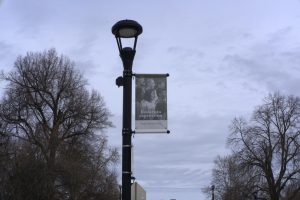The Lever Press rolls out
Penrose Library and the Oberlin Group forge ahead on academic press to cut out publishing conglomerates.
January 30, 2017

As the prices of academic journals skyrocket and publishing conglomerates are increasingly favoring works that appeal to large research institutions, librarians from liberal arts colleges across the country have come together to take the matter into their own hands.
The Lever Press is a publishing venture that aims to address these issues head-on through an entirely open access scholarship platform and commitment to liberal arts college values. The idea for the press initially came from the Oberlin Group, an organization of 80 top liberal arts colleges across the country, including Whitman College, focusing on library and scholarly publishing issues.
Whitman College Library Director Dalia Corkrum has worked at Whitman for over a decade, giving her a firsthand view into the recent trends in publishing.
“About 15 years ago, it became very evident to librarians that we were in a scholarly communication crisis. Prices on journals were doubling, tripling, even quadrupling every year, to the point that it was unsustainable,” Corkrum said. The marked increase in the buy back of edited journal publications was not the only problem. There was also a lack of interest from the large publishing conglomerates in the scholarship liberal arts colleges traditionally value.
In the summer of 2013, Bryn Geffert, the Head Librarian at Amherst College and member of the Oberlin Group, proposed that the group establish a commission to look into the possibility of creating their own publishing venture.
Academic publishing conglomerates currently require faculty to give them their research manuscripts without any compensation. Once edited and published, the college that originally sent the publication has to buy it back and sometimes for thousands of dollars. Nonprofit university presses, which are generally more interested in publishing diverse works that are relevant to liberal arts colleges, find it difficult to compete with the large publishing companies because they are more interested in publishing works that appeal to large research institutions. Faculty, especially from liberal arts colleges, are finding fewer and fewer outlets for their scholarship.
The Oberlin Group spent several years looking into possibilities for the creation of their own college-run press. The organization hired a publishing contact in the U.K. to help figure out business models, gauge potential audience for such a press and entice faculty. After the answers to these concerns came out largely positive, members of the Oberlin Group approached existing university presses to see if there was any interest in working together and establishing a new press. They sent out requests for proposals, and the winning proposal was from University of Michigan and Amherst College.
The press is run by an oversight board composed of library directors. The actual work is being done by staff at the University of Michigan Press and Amherst College Press. Funding comes from donations from participating college libraries and the editorial board, established by the oversight committee, reviews all proposed publications.
The press expects to have their first works published by next year. With current donations, the Lever Press aims to publish 60 titles over the course of five years.
“Because we’re a small school and the amount of research we generate isn’t very much, it makes having access to other, relevant academic publications even more important,” junior biology major Max Sheffield said. “At the college level, scientific topics become very specific. Having access to all of the relevant information on certain topics becomes critical to research.”
For students who are beginning to have published works of their own, “Turn to open access publishers rather than the big conglomerates,” Geffert advised. “[Your] research will be freely available … open access publications are read more and cited more by other scholars, and we all know citation is a huge measure of research impact.”
Unlike the current publishing conglomerates which, as Corkrum said, “offer no good venue for new forms of scholarship that are not appropriate for print monograph, such as the digital humanities,” the Lever Press pledges that one quarter of their titles will be digitally innovative, with projects combining text, data and multimedia. The press is also committed to interdisciplinary and liberal arts college values and will include joint professor-student research and work.
“I take very seriously the notion that all people ought to have good access to any and all information they need,” Geffert said. “It’s a big part of what motivates me in this profession … it’s a social justice commitment and one that badly needs defending and promoting and I see The Lever Press as doing that.”







